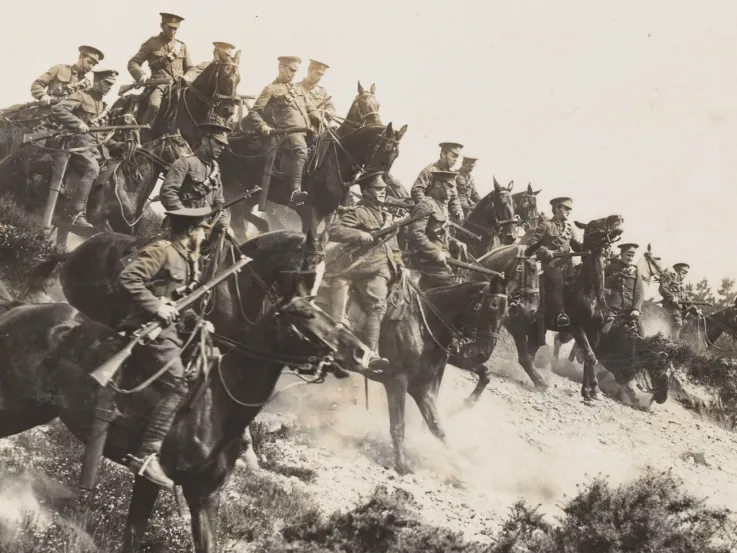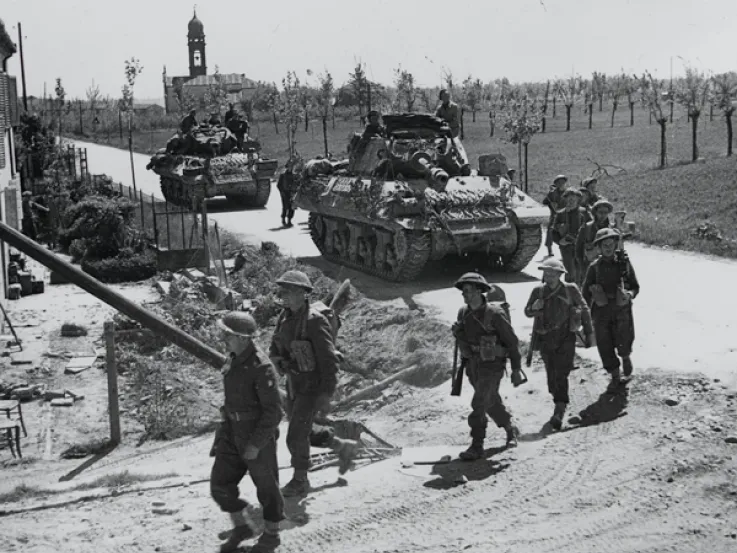Transcript: Hitler Line
Audio transcript
Gerry Chester:
'Ballyrashane' was the first tank to go out. Right behind us was 'Bangor', second in command. And because there was shelling, we couldn’t see more than about 10 yards, there was dust everywhere.
We hadn’t gone about 100 yards and suddenly: bang, bang, bang. We were hit three times on the starboard side, very hard. Skipper said, 'Bail out!'
We got out so fast and I can’t remember, instantly... all I remember is that I was out and I was clutching the firing pin. It’s the only thing I can remember about it, but went down this side of the tank.
Unfortunately, my driver, Harry Jenkins, a southerner from Glenageary in Dublin, suburb of Dublin, was killed on the way out because one of them hit the track side and the cover and cut him very badly.
Skipper said there was a shell that hit and sent a lot of... skimmed on the turret and a lot of red hot stuff flying around. I got a wound on my hand, very slight, but the skipper had a very bad wound on his head and, other than the co-driver, everyone else, the rest of them, were slightly wounded.
Fortunately, just in front of us was a ditch and we got in there because there was shelling going on all the time. Then suddenly, after we’d got out, a shell penetrated the turret being cast iron... went in the turret. Shortly afterwards, the flames set the ammunition on fire, the tank was burning.
And, suddenly, the gun fired. And how it did that without a firing pin I don’t know, but it fired. We were just that side of it, to the left of it, fired there... and that went off.
Anyway, fortunately, we were able to get Skipper back and he survived the war, Gordon Russell. And he came back to see us later and he thanked his crew, thanked us for saving his life and I got a mention in despatches for it.
Description
This transcript is from an interview with Gerry Chester (NAM. 2012-06-4-1) conducted at the National Army Museum in 2012. Gerry served with the North Irish Horse from 1941 to 1946.



